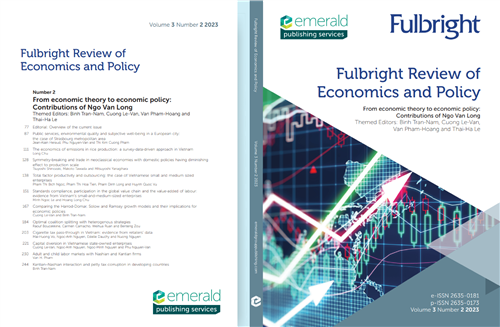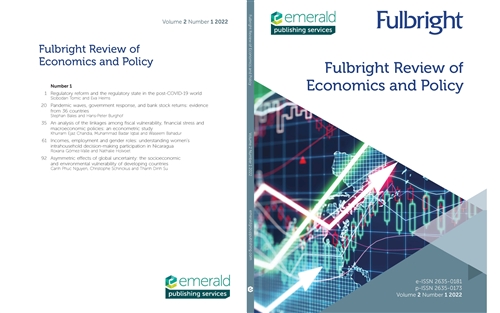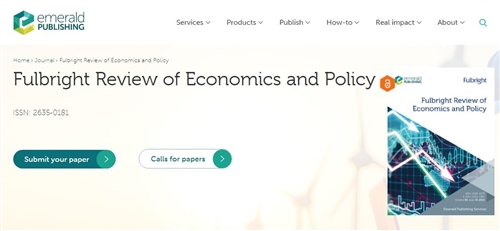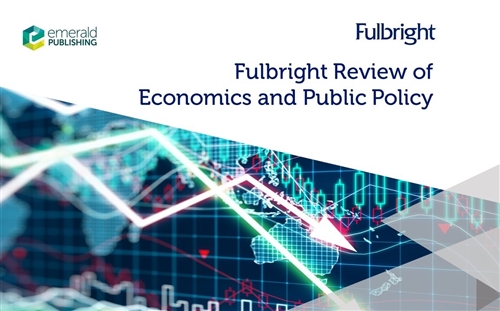Introduction
The commitment to keep the global average temperature below 20C and ideally below 1.50C above the pre-industrial level under the Paris Agreement 2015 urges countries worldwide to take rigorous actions to reduce their emissions. The energy industry is the heart of the reform, as this sector alone accounts for over three-quarters of global CO2 emissions (IEA, 2023). Energy transition, therefore, becomes one of the key objectives in many countries' national strategies.
Shifting away from fossil fuels, however, is challenging. Fossil fuels have long been the driving force of both economic and social progress. The existing power systems in most countries are dependent on traditional resources such as coal, oil, and gas. The fact that a significant portion of the economy comes from fossil fuels implies that this sector wields decisive power over political institutions. Regarding power system operations, traditional power plants are designed to provide a base-load supply in a stable environment rather than working in tandem with a high level of intermittent renewable energies such as solar or wind. As the power system is rapidly transitioning from a centralized system based on traditional large thermal power plants to a distributed system with a high level of variable renewable energy (VRE) integration, flexibility is critical for safe and efficient operations. The higher the share of VRE is in the system, the more flexibility the system needs to function properly.
Successful energy transition underscores the importance of both internal and external support. Internally, the transition from fossil fuels to renewables must consider potential negative socio-economic consequences such as workforce retraining, government fiscal positions, the supply chain, and other social justice issues. Externally, the Just Energy Transition Partnership (JETP) is one mechanism in which developed countries commit to provide financial support to industrialising countries to implement energy transition. This funding comprises both public and private funding through different channels such as concessional loans, grants, and guarantees. Indonesia and Vietnam are the first beneficiaries of this partnership in Southeast Asia. Cross-border collaboration is also crucial, especially in multilateral power trade. In ASEAN, given the diverse resources, regional trade could be used to strengthen energy security and promote decarbonization.
In this regard, the Fulbright Review of Economics and Policy (FREP) invites you to submit your paper on "Clean Energy Transition in Asia-Pacific: Prospects, Opportunities, and Challenges". We look for unpublished papers from multi-disciplinary areas, including but not limited to:
- The state of energy transition: Prospects, opportunities and challenges
- Power market reforms
- Socio-economic impacts of energy transitions
- Equity, inclusiveness, and fairness in energy transitions
- Financial mechanisms for energy transitions
- The role of multilateral collaboration in tackling energy and climate challenges
- Just Energy Transition Partnership (JETP), Carbon Border Adjustment Mechanism (CBAM), and other international mechanisms
We welcome submissions in various formats, including theoretical and empirical research papers, meta-analysis or review articles, technical or perspective papers, and case studies. We invite authors to submit research proposals or full manuscripts for consideration. Those pass preliminary screening by the Editorial Board will be invited to submit their full manuscript via our system at https://mc.manuscriptcentral.com/frep. For more information about how to submit your paper, please visit here. Your manuscript will be subjected to a rigorous peer-review process. To help authors cover part of their expenses, we are pleased to offer financial support of US$1,000 per paper accepted for publication in the special issue. If your paper is not accepted for publication after the peer-review process, authors would be reimbursed US$300 per paper for their time and efforts.
We gratefully acknowledge the support and guidance provided by the Climateworks Centre for the preparation of the Special Issue in Clean Energy Transitions in Asia-Pacific in Fulbright Review of Economics and Policy.
Editors
- Dr. Ceren Ayas, Climateworks Centre, Monash University, Australia (Special Editor);
- Dr. Le Viet Phu, Fulbright School of Public Policy and Management, Fulbright University Vietnam, Vietnam;
- and the Editorial Board
Important Due Dates
- Proposal submission: May 26, 2024
- Proposal feedback by the Editorial Board: May 31, 2024
- Full paper submission: July 31, 2024
- Final manuscript submission: September 26, 2024
- Publication: Q4/2024.
Proposal Submission
We invite authors to send us your research proposals with the required information following the template below to our Office email at frep@fulbright.edu.vn. We also welcome if you already have a full manuscript.
Research Proposal Template
- Title of the paper
- Author(s) information (name, affiliation, bibliography, and contact email)
- Brief background and objectives
- Brief literature review
- Description of research methodology and data
- Findings or expected findings.
Note
You can visit our homepage for general information. If you have any questions regarding this Call for Papers, please contact our Editorial Office via frep@fulbright.edu.vn.
References
- IEA. (2023). CO2 Emissions in 2022. Paris: IEA. Retrieved from https://www.iea.org/reports/co2-emissions-in-2022.
Related Articles

The Fulbright Review of Economics and Policy (FREP) has published its latest issue, Volume 3, Issue 2

FSPPM publishes the latest issue of FREP


